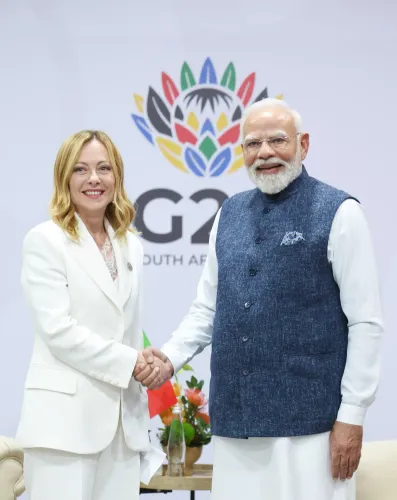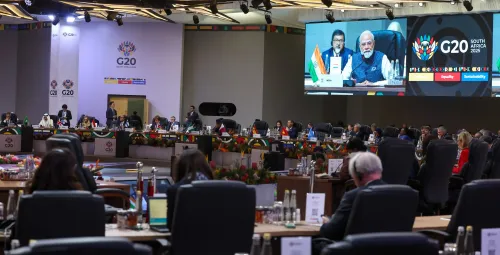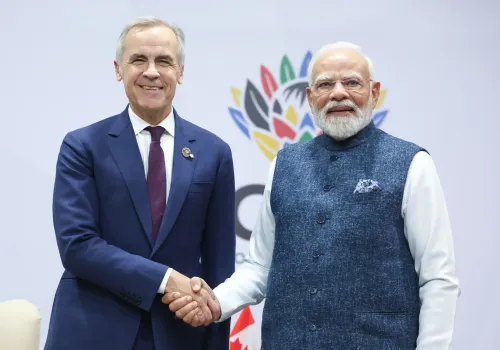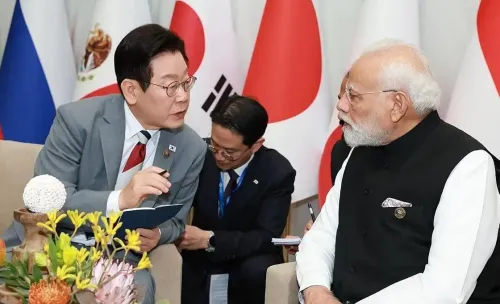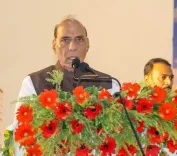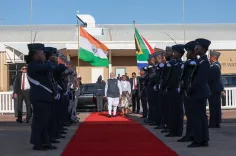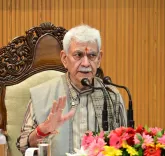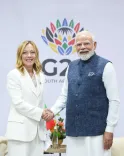Trump's Tariffs Implemented Amid Negotiations
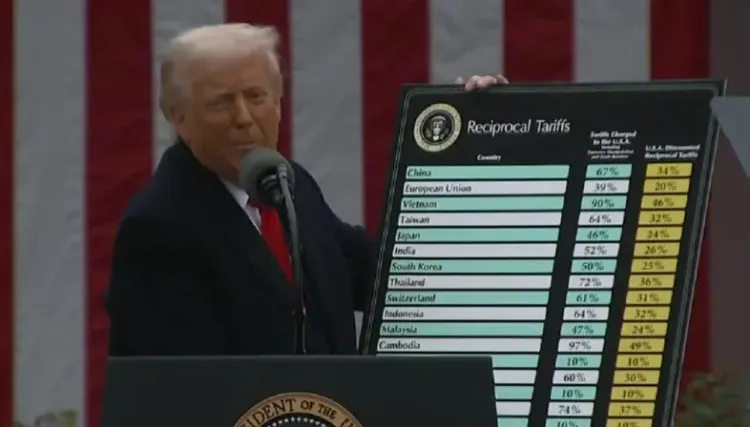
Synopsis
Key Takeaways
- The tariffs are set to start without delay.
- China faces the highest levy at 104%.
- India's goods are subject to a 26% tariff.
- Negotiations are ongoing with 70 countries.
- Custom agreements are prioritized over generic ones.
Washington, April 9 (NationPress) The comprehensive reciprocal tariffs imposed by US President Donald Trump are set to take effect on Tuesday at midnight US Eastern time (9:30 am IST), remaining unaffected by ongoing negotiations with the impacted trading partner nations. Among these tariffs, the most substantial is a 104 percent levy on imports from China.
India faces a 26 percent tariff and ranks among the most severely impacted countries.
The Trump administration has indicated that discussions are ongoing with 70 trading partner nations, aiming to establish customized agreements rather than adopting a one-size-fits-all approach.
According to White House Spokesperson Karoline Levitt, these reciprocal tariffs “will remain in effect as negotiations proceed.”
During a call on Monday, External Affairs Minister S Jaishankar and US Secretary of State Marco Rubio discussed and reached a consensus on the need for an “early conclusion” of a Bilateral Trade Agreement, marking the first trade discussion at the cabinet level.
Though Prime Minister Narendra Modi and President Trump have yet to converse following the announcement of these tariffs, a change could be imminent, as the American leader has shown willingness to negotiate despite his aides stating that the tariffs are non-negotiable.
On Monday, Trump had conversations with Japan’s Prime Minister Shigeru Ishiba and met with Israel’s Benjamin Netanyahu, as well as having a discussion with South Korea’s acting president, Han Duck-soo.
The US President has also expressed frustration over China’s decision to retaliate with additional tariffs rather than engage in negotiations, indicating his openness to revisiting the tariffs that have unsettled global markets.
Levitt countered claims that the White House’s stance on tariff negotiations has changed, emphasizing that “the entire administration has consistently maintained that President Trump is willing to communicate.”
No specific timelines have been set for these negotiations, and imports from the affected nations will continue to incur the new tariff rates as talks progress. This will likely be a lengthy process as the US seeks individualized agreements.
“The President met with his trade team this morning and instructed them to pursue customized trade agreements with every nation that contacts this administration,” Levitt noted. “Each trade deal should be unique, reflecting the specific markets and exports of that country, as well as the imports in the United States, prioritizing what benefits the American worker and industry. The President’s focus remains on prioritizing America.”
During a hearing on Monday, Jamieson Greer, the US trade representative, was questioned by lawmakers about the timeline for negotiations. He responded, “We do not have a specific timeline,” adding, “achieving the best outcome is more critical than setting an arbitrary deadline. What I can assure is that I am progressing as swiftly as possible.”

